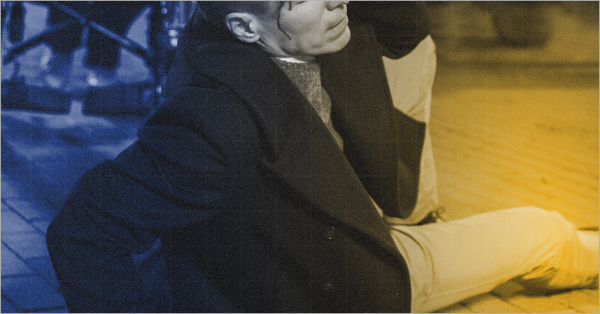In bustling markets, crowded malls, and even serene office spaces, slip and fall accidents lurk as silent threats to businesses. For entrepreneurs and business owners in India, the financial and reputational repercussions of such incidents can be overwhelming. Enter Commercial General Liability (CGL) Insurance – a crucial safety net designed to shield businesses from the unpredictable nature of slip and fall claims.
Understanding Commercial General Liability (CGL) Insurance
Commercial General Liability Insurance is a cornerstone for businesses aiming to protect themselves against third-party claims. In India, this policy typically encompasses:
- Bodily Injury Liability: Covers medical expenses and legal fees if a third party is injured on your premises.
- Property Damage Liability: Addresses damages caused to someone else’s property due to your business operations.
- Personal and Advertising Injury Liability: Protects against claims related to defamation, false advertising, or invasion of privacy.
- Medical Payments (Optional): Some insurers may offer limited coverage for immediate medical expenses for third-party injuries, even if no legal liability is established. However, this is not a standard inclusion in all Indian CGL policies and usually requires specific endorsement.
These coverages collectively ensure that businesses are not financially crippled by unforeseen accidents.
What Constitutes a Slip and Fall Claim?
A slip and fall accident occurs when an individual loses balance due to hazardous conditions, leading to injury. Common scenarios include:
- Wet Floors: Spills or cleaning activities without proper signage
- Uneven Surfaces: Cracked tiles or raised carpets
- Obstructions: Items left in walkways or hallways
- Poor Lighting: Inadequate illumination in staircases or corridors
In India, such incidents are prevalent in commercial establishments, especially during monsoon seasons when water accumulation increases the risk of slips.
Legal Framework Governing Premises Liability in India
In India, business owners have a duty of care toward visitors, primarily governed by general principles of negligence under tort law and, in some cases, under the Consumer Protection Act. This duty includes:
- Duty to Maintain Safe Premises: Taking reasonable steps to identify and correct hazards
- Duty to Warn: Informing visitors of any known risks via signs or verbal communication
- Duty to Remedy: Taking prompt action to fix any identified safety issues
Breach of this duty can lead to claims of negligence, especially if it results in bodily injury.
How CGL Policies Cover Slip and Fall Claims
Most standard CGL policies in India can cover slip and fall incidents under Bodily Injury liability, provided the injury arises due to accidental and unforeseen causes related to business operations. However, coverage specifics vary by insurer, and policy wording must be reviewed carefully to understand the scope, limits, and exclusions.
Coverage typically includes:
- Bodily Injury Coverage: Pays for medical expenses, rehabilitation costs, and legal fees if the injured party sues
- Legal Defence Costs: Covers solicitor fees, court costs, and any settlements or judgments
- Medical Payments (if endorsed): Offers immediate payment for minor injuries, potentially preventing larger claims
It’s essential to review policy wordings to understand specific inclusions and exclusions related to slip and fall incidents.
Claims Process for Slip and Fall Under CGL Insurance
Navigating a slip and fall claim involves several steps:
- Immediate Medical Attention: Ensure the injured party receives prompt medical care
- Incident Documentation: Record details of the accident, including photographs and witness statements
- Notify the Insurer: Inform your insurance provider about the incident as soon as possible
- Investigation: The insurer will assess the claim, which may involve site inspections and interviews
- Settlement or Defence: Based on findings, the insurer will either settle the claim or provide legal defence
Timely and accurate reporting is crucial to ensure smooth claim processing.
Exclusions and Limitations: When Slip and Fall May Not Be Covered
While CGL policies offer extensive coverage, certain scenarios may be excluded:
- Employee Injuries: Injuries to employees are typically covered under Workers’ Compensation Insurance, not CGL
- Intentional Acts: Deliberate actions leading to injury are not covered
- Contractual Liabilities: Obligations assumed under contracts may not be covered unless disclosed and specifically accepted by the insurer
- Pollution: Most standard CGL policies exclude pollution-related claims unless a sudden and accidental pollution endorsement is included
Understanding these exclusions helps in assessing the adequacy of your insurance coverage.
Risk Management and Prevention Strategies for Businesses
Preventing slip and fall incidents not only protects individuals but also safeguards your business:
- Regular Inspections: Conduct routine checks for hazards like wet floors or uneven surfaces
- Proper Signage: Use clear warning signs for wet floors or construction areas
- Employee Training: Educate staff on safety protocols and emergency procedures
- Maintenance Logs: Keep records of inspections and repairs to demonstrate due diligence
Implementing these measures can reduce the likelihood of accidents and strengthen your position in case of a claim.
Importance of Tailoring CGL Coverage to Your Business Needs
Each business has unique risks. Tailoring your CGL Policy ensures comprehensive protection:
- Industry-Specific Risks: For instance, restaurants may need coverage for food-related incidents
- Add-on Coverages: Options like Food & Beverage Liability or Lift Liability can be added to standard policies
- Policy Limits: Adjusting coverage limits based on business size and risk exposure
Consulting with insurance professionals can help customise a policy that aligns with your specific needs.
Final Thoughts:
Slip and fall accidents, though common, can have significant financial and reputational impacts on businesses. A well-structured Commercial General Liability Insurance Policy acts as a vital shield, offering protection against such unforeseen events. By understanding the nuances of coverage, exclusions, and implementing proactive safety measures, businesses can navigate the complexities of slip and fall claims with confidence.
Note: The information provided in this blog is based on general industry practices and may vary. It is advisable to consult with insurance professionals to understand specific policy details and requirements.








